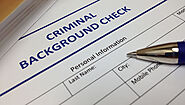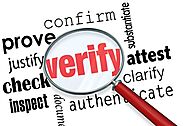-
About
- About Listly
- Community & Support
- Howto
- Chrome Extension
- Bookmarklet
- WordPress Plugin
- Listly Premium
- Privacy
- Terms
- DMCA Copyright
- © 2010-2025 Boomy Labs

 Kiwi Searches
Kiwi Searches
Listly by Kiwi Searches
Conducting background checks is no longer limited to state government bodies. Here are the most common types of background checks.
Source: https://kiwisearches.com/blog/types-of-background-checks-and-what-they-are-used-for/

A standard background check can be requested by anyone, and you can even conduct one for yourself. Reports include full name, aliases, date of birth, social security number, marital status, religion, residential address history, and employment history. It may also include contact details such as phone numbers and email addresses, as well as social media accounts.

A criminal background check includes details that can be found in a standard background check and in-depth details about a person’s criminal history. Reports include arrest records, incarceration records, and court records. These also contain convictions of any offenses, including misdemeanors and felonies. If there are any, sex offenses may also be included but in most cases, the victim’s details are not divulged. All warrants filed by and issued upon the person you’re searching for can be found in a criminal record check.

Unlike the other types of background checks, credit reports have stricter guidelines, including the need to provide a detailed and valid explanation of how the information will be used. Once approved, the requestor can get access to a person’s credit score, debt levels, repayment history, credit and collection accounts, repossessions, charge offs, and delinquent accounts. Any confirmed or suspected fraud activities might also be included.

Before a company hires someone, they typically run an Employment Background Check. This is done to make sure the candidate’s credentials are correct and that they don’t use drugs or have a criminal past. The company must have the candidate’s full name, current address, Social Security Number, and permission in order to run a check on them. For employers such as the State, or Local or National government, an extensive federal employment background check will likely be performed. Such checks are more in-depth and may include the applicant’s credit and family history, places where they have lived, religion, organizations they have or have held membership, bank accounts, etc., and can ‘go back’ for a longer period of time in a person’s personal history.

An advanced background check is an extensive online person search that includes extensive information that’s not found in your typical instant search. This type of background check is most commonly used by employers to vet potential employees, or by someone who’s tracking down a long lost relative.

When someone is looking to purchase a firearm from a dealer or manufacturer, a Universal Background Check must be performed. The sellers are required to use the National Instant Criminal Background Check System (NICS) to research the potential buyer. A person will not pass if they have a criminal past, are an illegal alien, or have certain mental illnesses.

A Fingerprint Background Check is often performed in conjunction with an employment or criminal background search. Certain jobs require this, such as those for airports, law enforcement, schools, and so on.

A Federal and Government Background Check is usually conducted when people are seeking jobs in law enforcement, schools, federal agencies, or as an independent contractor (not limited to these jobs). It’s required by law to look into a person’s employment and criminal history of federal job applicants.

A personal background check is when someone runs a background check on themselves. Why do this? Well, it helps to see what information could be found about you online by anyone, including future employers. There are plenty of free & paid online websites that will enable you to do this.
